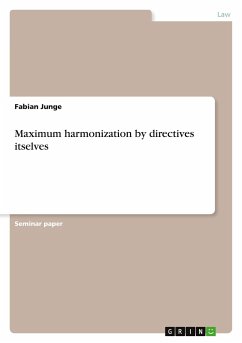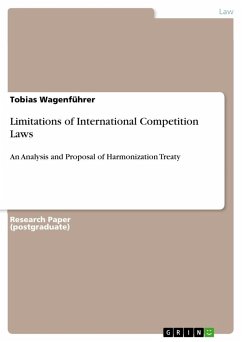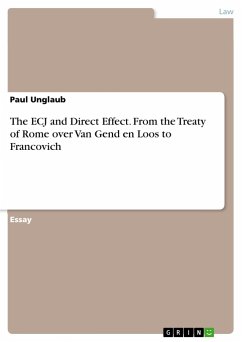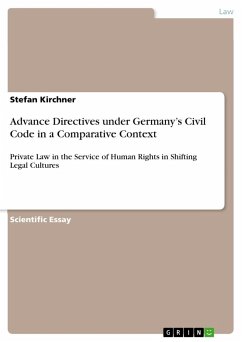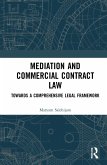Seminar paper from the year 2011 in the subject Law - European and International Law, Intellectual Properties, grade: 1,3, Carl von Ossietzky University of Oldenburg, language: English, abstract: The subject of harmonization and especially the seemingly never-ending discussion about its intensity and ways of achievement have been recurring topics within the history and development of various legal systems all over the world. Since the Middle Ages the notion is found that peace-keeping and an improvement of social and economic criteria can be reached through integration and approximation of various national legal systems.1 The European Union is herein no exception as it will be discussed in section B. As a logical conclusion of this long term development, it is obvious that the issue of harmonization includes a broad variety of difficult legal aspects that has been and will be examined by a large number of lawyers and courts. This paper will put the focus on maximum harmonization by directives itselves. But what is meant by the term maximum harmonization? In order to answer this question, there will be given a short overview of the general idea behind harmonization. Furthermore, the paper will provide an introduction to the theoretical concept of maximum harmonization. As one might observe during the analysis of the first part, the bulk of the problems arise around the relationship between the competences of the European legislator and the different national legislators. The pivotal question of this work therefore is: "How much leeway is left to the Member States of the European Union by implementing a European maximum harmonizing directive into the national legal order in case of doubt?"The research will be rooted in the field of unfair competition law and in particular with comparative advertising, which is currently a highly controversial field regarding the aspects of harmonization due to the fact that there is a multiplicity of regulatory approaches in the Member States. 2To point out the cruxes of the question with reference to the chosen field of law and to illustrate the concept of maximum harmonization, a relatively recent case between O2 Holdings Ltd. and Hutchison 3G UK Limited3 will serve as object of investigation. In the end, there will be some final remarks on the topic of harmonization in the European Union in general.
Hinweis: Dieser Artikel kann nur an eine deutsche Lieferadresse ausgeliefert werden.
Hinweis: Dieser Artikel kann nur an eine deutsche Lieferadresse ausgeliefert werden.

